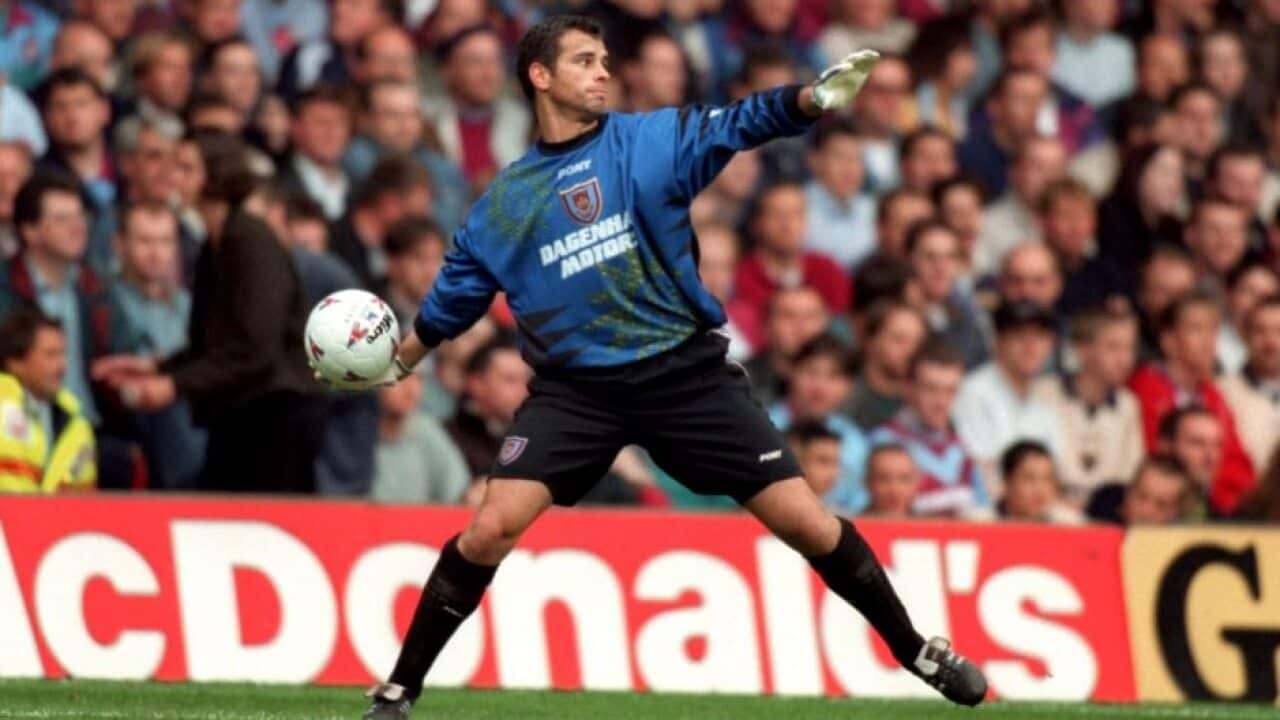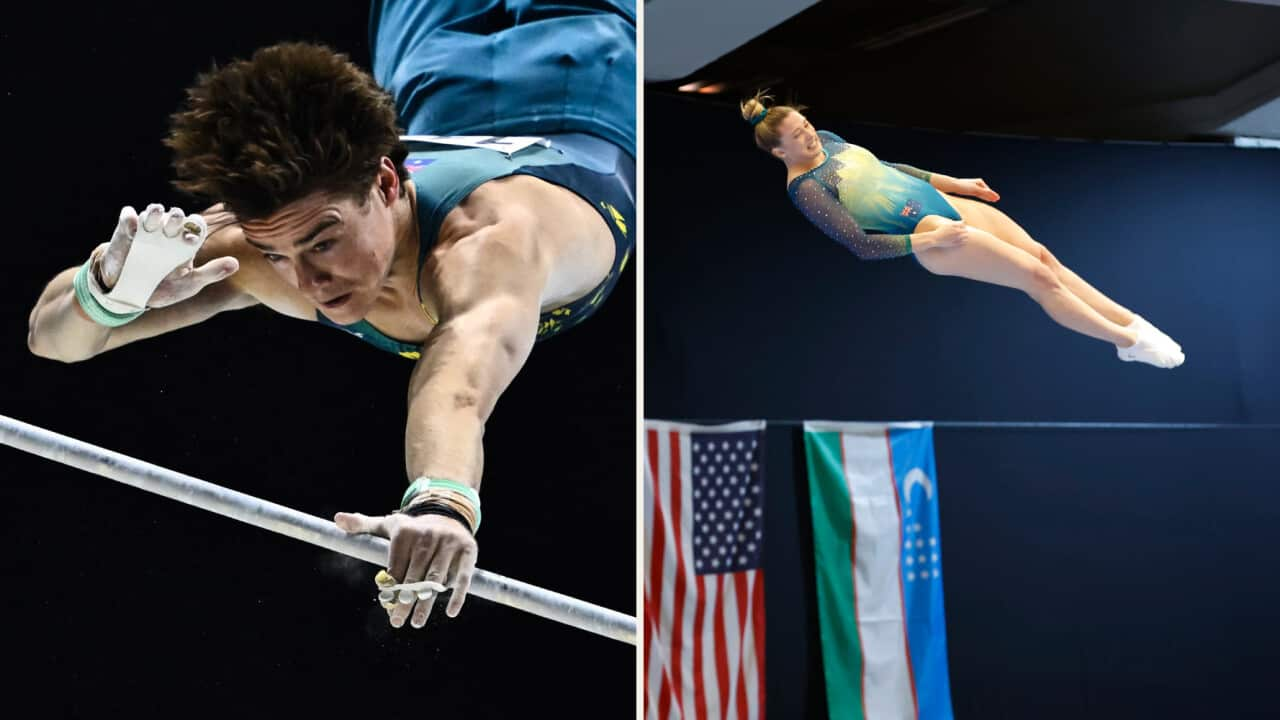In the early 1990s, Mautone was between the sticks for Morwell Falcons, South Melbourne and Canberra Cosmos, before embarking on a seven-year spell playing in the UK.
These days, the 50-year-old is managing director of IS Apparel and Givova Sports Australia.
“I’ve got the distribution of the Givova brand here in Australia,” Mautone told The World Game.
“I service a lot of the community clubs in and around Australia with apparel, it kind of keeps me involved in football as well as running my own business.
"It’s an industry I was never in before, but it’s mainly based around serving football clubs, but I do cover volleyball as well.
“It’s challenging, it’s been a challenge since COVID-19 stopped all sports. It’s been a difficult one but a good learning experience as well.”
After retiring in 2002, Mautone served as Victory’s goalkeeping coach for nine years. In that period, he worked with managers Ernie Merrick, Mehmet Durakovic, Jim Magilton, Ange Postecoglou and Kevin Muscat as the club won three grand finals and three premierships.
“That was a fantastic part of my life and I learnt a lot about the coaching game, and also definitely had some good success,” he said.
“It was a really exciting time for football in Australia, it kind of had a bit of a rebirth. I was really sceptical because I felt like I’d seen it before in Australia, where they try and reinvent themselves.
“For a good period of time, at least seven or eight years, it was an emerging sport and growing, it captured the imagination and the passion of more than just football fans.
"There were a lot of people I was surprised who were members or season ticket holders, and secondly just talking about the league.
“Some of the things Victory did like moving to a 50,000-seat stadium for some games was just unheard of in my day.
"Playing in front of those crowds, it was almost expected you were getting 30,000-plus to games. It was a fantastic time, a fantastic time in my life and I made some really good friends.”
But in April 2015, Mautone left his post at Victory to spend more time with his family and three young children.
Now, he coaches his son’s Under-13s team at Port Melbourne Sharks.
“I didn’t want to be one of those fathers who looked back in their career and said, 'I missed a lot of time with family',” he admitted.
“I’d heard that from many other people. That was probably the biggest motivator. I’ve got twin daughters and a son, and they’d just started getting into sports and school activities, and I was just missing so much stuff. That’s why I went down that road.”
Mautone grew up in the small town of Myrtleford, with a population of around 3,000, and went on to play in the NSL before eventually earning a contract with Harry Redknapp’s West Ham.
He also represented Australia at Under-23 level and went close to a full Socceroos cap.
“My journey, in reality, started a bit earlier as I went over to Italy when I was 16,” the former shot-stopper said.
“I spent a year at a team called Como. In 1987, they were in the Serie A and I was in their youth system. It was an experience that I still hold today, and hold through my career, and still use in my coaching to test the kids how I was tested by the Italians back then.
“But that was an exciting time as Italy was just flying at the time. Maradona was there, Ian Rush, it was probably the league to be in. That grounding gave me a good stead for my future.
“Looking back at what I achieved, I suppose it’s all relative – I played with and against many players that achieved far more than what I did. But I suppose everyone’s got their own story and when I look back and think about where I came from, I came from a small town in country Victoria on a farm.
“When I go back there, sometimes I think, 'how the hell did I end up playing in the EPL?' It’s just one of those things; you just kind of go with the flow, things are presented in front of you and you just go for it.
“It was never a thought for me, 'what if I don’t make this team or don’t make this contract?'. It was just a case of I’m going to keep going until I get it. And coming back to Australia from Italy, I just had a passion to make it as a profession and I didn’t end up going to England until I was 25.
“I played a fair amount of NSL football, I was in and out of squads with the national team, I never quite made an A game cap. I played some friendlies and things like that, but it was just always a drive of mine to become a professional.
“The best I had in the NSL was part-time football, training three nights a week and playing on Saturdays and then trying to land a job. So when I was lucky enough to get a contract in England, it was a big culture shock.
“I wish I had the opportunity to get over two or three years before that so I had some time to adjust to that culture shock, and embed my career a little bit more.
"But it was a fantastic experience. Turning up to my first trial day at West Ham, I got actually got shoved into the senior change rooms and I didn’t realise it was at the time.
“I didn’t look at anyone, I just wanted to get my gloves and boots on and get on the pitch. I looked over and across at the next bag to me and it had gloves in it, and I looked up and it was Peter Shilton. I nearly fell off my chair.
“He was coming towards the end of his career. In the end, he actually had a bit of an influence on me getting a contract, because I think he liked my work ethic and a few components of my game. His recommendation maybe got my contract over the line.”
Mautone debuted in the Premier League for the Hammers in September 1996, playing in a 2-0 win over Nottingham Forest.
At the time Redknapp was in charge of West Ham, where the east London club’s squad included the likes of John Hartson, Stan Lazaridis and teenaged duo Rio Ferdinand and Frank Lampard.
“It was an exciting time for the EPL as well,” he remembered.
“It was when Wenger first got there, Chelsea had a lot of foreigners and Harry Redknapp was bringing in foreigners left, right and centre - like Slaven Bilic, Dumitrescu, Paulo Futre.
"It was an exciting time for the EPL as there was an influx of foreigners, money was growing, it was just starting to reap the rewards of pay TV.
“It was a bit of a turning point for the league and to be part of it, to look back and look at players sitting on the bench like Cantona, that was unbelievable.”
But in 1997, the keeper was sold to Reading for £250,000. After two seasons with the Royals, and then spells with Wolverhampton, Crystal Palace, Gillingham and Slough Town, he hung up his gloves.
While no longer working in the A-League, Mautone still maintains a keen interest in the competition and Australian football.
He believes the A-League has made real progress since its birth in 2005, but has suffered a tough period more recently.
“Certainly it's far better than it was when I was growing up,” he said.
“But I think there’s some really challenging times to come. I just see, obviously COVID hasn’t helped a lot of sports all around the world, but the A-league in particular - it was a turning point, the TV deal was on the verge of collapsing.
“Hyundai pulled out and that was before COVID. Then the big shift with the clubs wanting to go independent, and I think things needed to change, but it’s a huge turning point for the league.
"I don’t know actually what it is but the last five years has failed in the sense that they haven’t kept up with the big marquees they pushed when it first started.
“You used to know who was playing who because it was on TV or on billboards around the city or whatever. It was hyped up. And that’s kind of all faded away.
"I don’t know if it was a coincidence but I think Football Australia was really hurt by missing out on the 2022 World Cup bid and the way that whole scenario panned out.
“I just feel there’s been a change since that whole process. There’s no coincidence that there’s less money, less sponsorship, less advertising and maybe the crowds are down, the interest is down and maybe the quality is down because you’re not bringing those elite players from overseas.”










